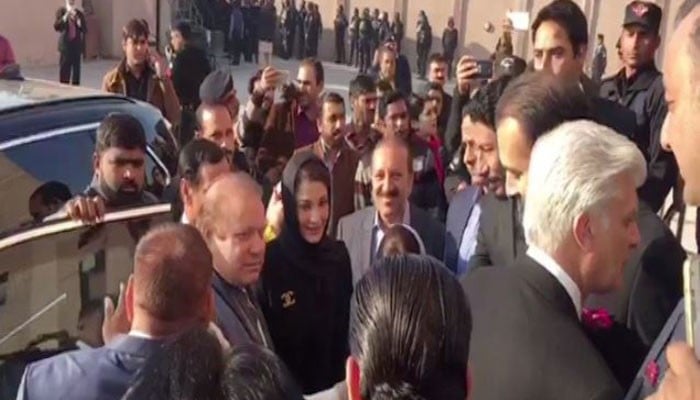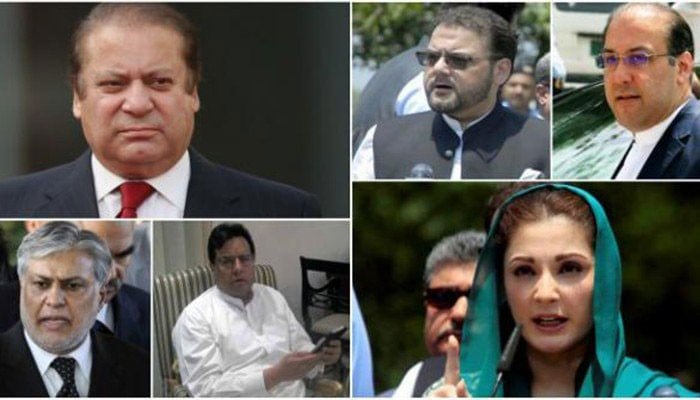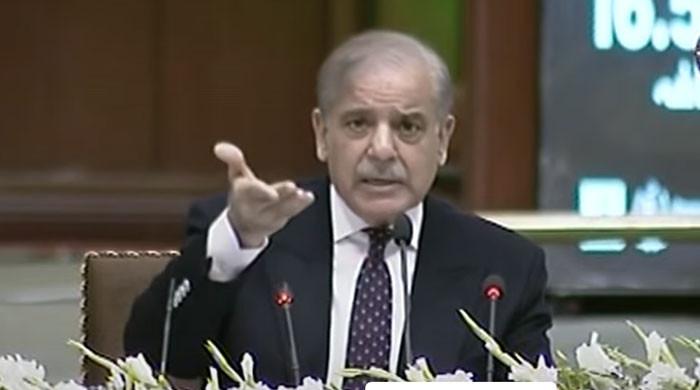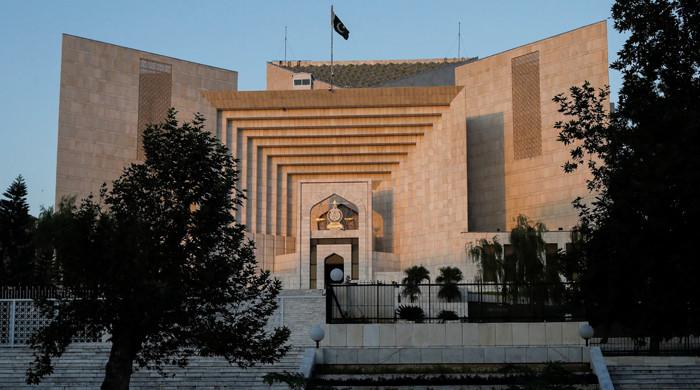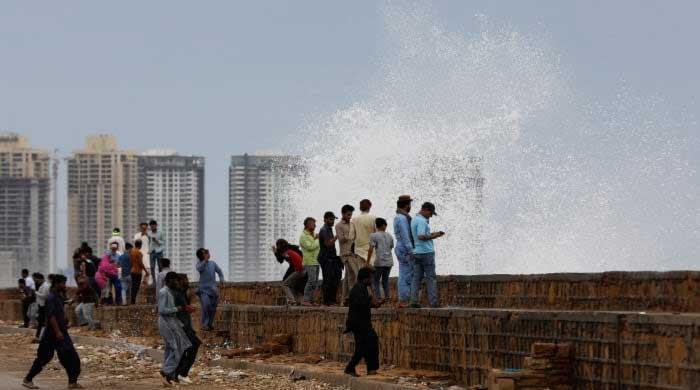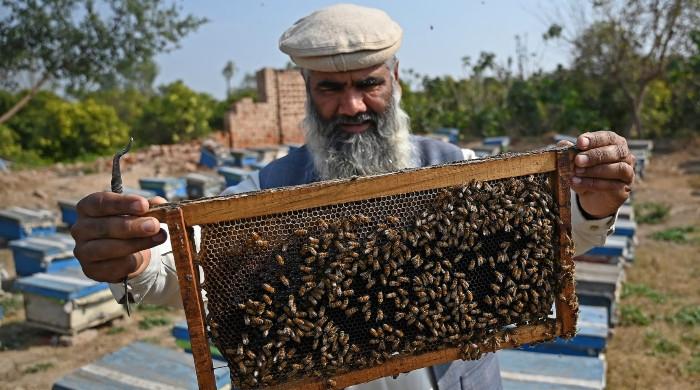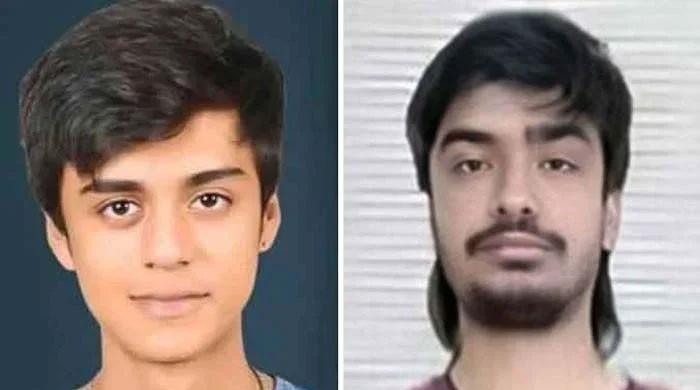Have a lot to say, proclaims Nawaz Sharif as corruption hearing adjourned
Former PM, family accused by NAB in three corruption references
November 28, 2017
ISLAMABAD: The accountability court hearing corruption references against former prime minister Nawaz Sharif and his family did not conduct any proceedings on Tuesday due to the absence of the defence counsel.
Earlier, Nawaz, his daughter Maryam and son-in-law MNA Capt (retd) Safdar arrived at the court for the corruption hearing.
Nawaz and his family are facing three corruption references filed by the National Accountability Bureau (NAB) in light of the Supreme Court's July 28 judgment in the Panama Papers case.
Nawaz and his two sons, Hussain and Hasan, are nominated in all three references — Al Azizia, Avenfield and Flagship — whereas Maryam and Safdar are only accused in one: Avenfield.
As the hearing began, Judge Mohammad Bashir was informed that Nawaz's counsel, Khawaja Harris, cannot make it to court as he is busy in the Supreme Court.
The defence then requested the court to adjourn the hearing on grounds that the Islamabad High Court (IHC) is expected to rule this week on Nawaz's request to club the three references against him into one.
However, NAB's Deputy Prosecutor General Muzaffar Abbasi opposed the plea saying the IHC could take months to deliver its judgment.
However, the hearing was adjourned until December 4.
Have a lot to say: Nawaz Sharif
Speaking in the courtroom to journalists, the former premier refused to comment on yesterday's decision of the IHC regarding the Islamabad protest.
The IHC had come down hard on the government over its handling of the protest and the army for its 'undue' role in the agreement between the protesters and the government.
Nawaz said there is a time for everything, and assured he will speak his mind on the subject in a couple of days.
Exemptions from appearance
At the last hearing on November 22, the court sought NAB's replies on Nawaz and Maryam's pleas to alter the dates of their exemption from appearance.
Maryam has submitted a request asking the court to alter her exemption period. The former premier's daughter now seeks exemption from court appearance from December 5, 2017 to January 5, 2018. Similarly, Nawaz seeks exemption from appearance from December 5-12.
The court was expected to rule on their request today.
Witnesses record statements
Three prosecution witnesses also recorded their statements at the last hearing and were cross-examined by the defence counsels.
Three further witnesses were expected to record their statements today: Tayyab Moazzam, Umar Daraz and Mukhtar Ahmed.
The references
The NAB has in total filed three references against the Sharif family and another against the then-Finance Minister Ishaq Dar in the accountability court, in light of the Supreme Court's orders in the Panama Papers case verdict of July 28.
The anti-graft body was given six weeks, from the date of the apex court's order, to file the reference in an accountability court while the accountability court was granted six months to wrap up the proceedings.
The references against the Sharif family pertain to the Azizia Steel Mills and Hill Metals Establishment, their London properties, and over dozen offshore companies owned by the family.
Maryam and Safdar are only nominated in the London properties reference. At an earlier hearing, the court also approved Maryam and Safdar's bail in the Avenfiled properties case and ordered them to submit surety bonds worth Rs5 million each.
Safdar was also directed to take the court's permission before leaving the country from now on. The judge also provided a copy of the reference — spread over 53 volumes — to Maryam and Safdar.
NAB's Rawalpindi branch prepared two references regarding the Azizia Steel Mills and Hill Metals Establishment, and the nearly dozen companies owned by the Sharif family.
Its Lahore branch prepared a reference on the Sharif family's Avenfield apartments in London and another against Finance Minister Ishaq Dar for owning assets beyond his known sources of income.
If convicted, the accused may face up to 14 years imprisonment and lifelong disqualification from holding public office including the freezing of bank accounts and assets.
